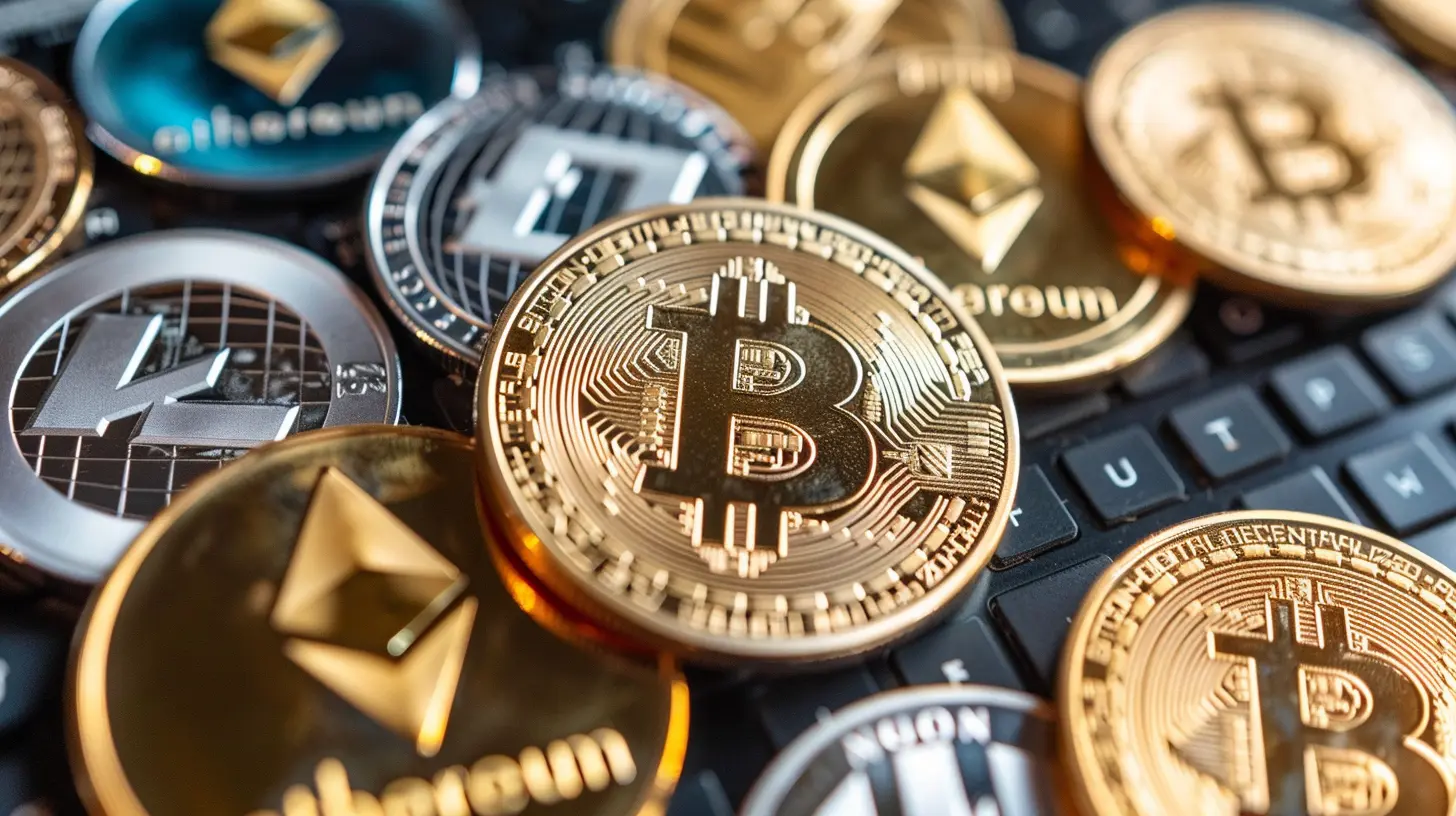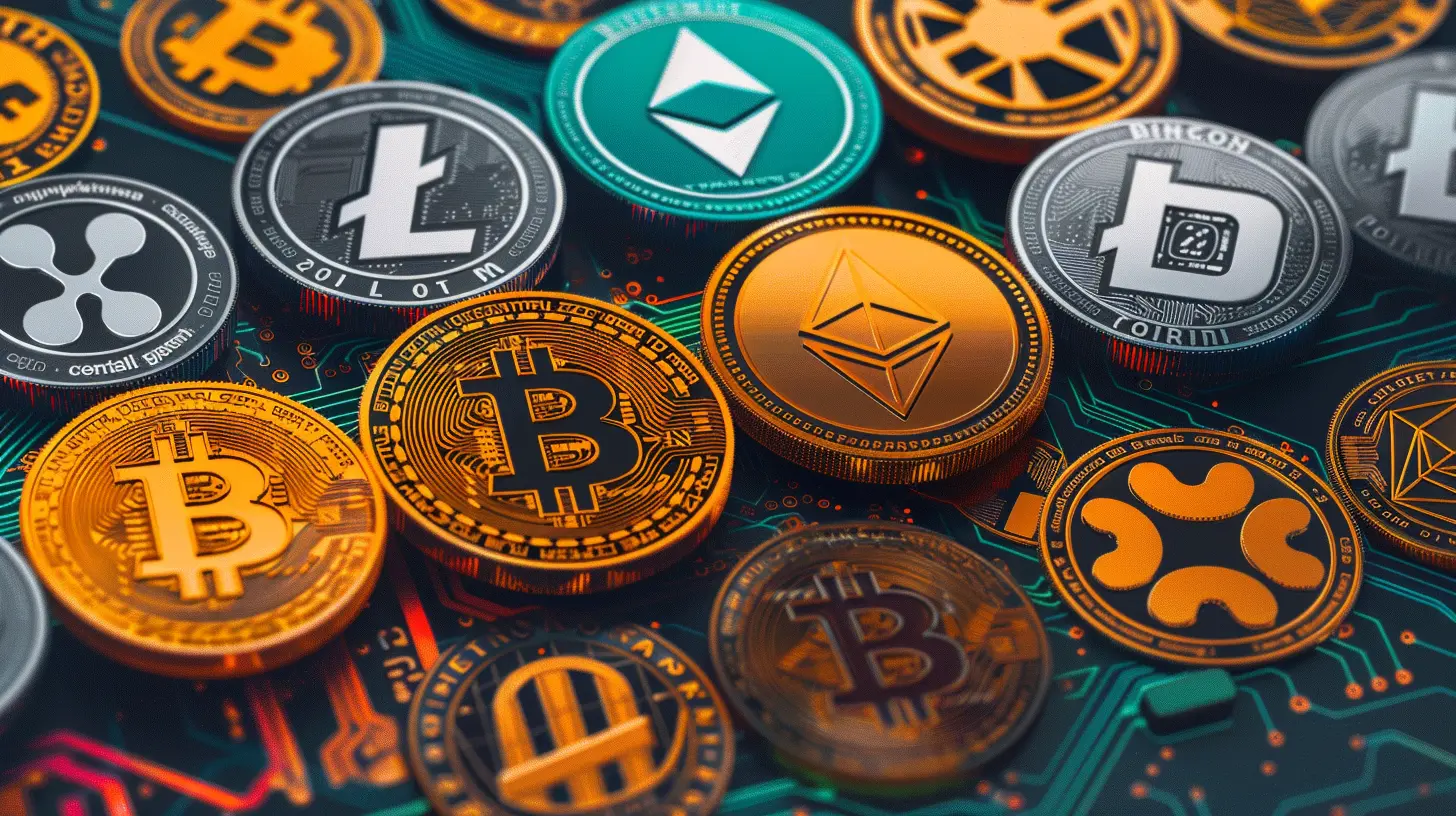Data Privacy and Cryptocurrency: What Every User Should Know
18 September 2025
Cryptocurrency might sound like the future — digital coins, decentralized systems, fast transactions. But there’s one vital piece that often gets swept under the rug: data privacy. Yeah, that thing you should care about every time you log in, spend online, or even check your crypto wallet.
So, let’s get real. If you’re diving into the world of crypto without understanding the privacy risks, you’re playing a high-stakes game — and not in a good way. In this article, we’ll walk through everything you need to know about data privacy in the crypto world. No fluff. Just straight-up useful and possibly life-saving info. Ready? Let’s do this.
What is Data Privacy, Really?
Data privacy is all about controlling your personal information — who can see it, who can use it, and how it’s stored.Think of it like this: your personal data is like your diary. You wouldn’t want just anyone flipping through the pages, right? Same with your online and crypto data. If the wrong person gets their hands on it, you could lose your money, your identity, or worse — your peace of mind.
The Paradox of Crypto Privacy
Cryptocurrency was supposed to be the answer to privacy concerns. Anonymous money? Sign us up! But here’s the twist: crypto is not as anonymous as you think.Many people assume using Bitcoin or Ethereum protects their identities because there’s no name attached to a wallet. But your wallet address? Totally trackable. Every transaction is published on a public ledger (aka the blockchain) — and if someone links your identity to your wallet, your entire history becomes visible like a neatly organized spreadsheet.
Scary? Yep. And that’s just the tip of the digital iceberg.
How Private Are Popular Cryptocurrencies?
Let’s break it down:Bitcoin
The OG of crypto. But as private as posting your vacation pics on Instagram with location tags. Every transaction is public — forever.Ethereum
Functional and versatile, but also not private. Smart contracts make things even more traceable.Monero
Ahh, the privacy king. Uses stealth addresses and ring signatures. If data privacy is your goal, Monero’s your buddy.Zcash
Offers both transparent and shielded transactions. You choose what to show and what to hide. Think of it like Snapchat, but for your wallet.So, unless you're using privacy coins like Monero or Zcash (correctly!), you're walking around with a financial GPS tracker glued to your back.
Why Should You Care About Privacy in Crypto?
Still wondering why you should give a hoot? Fantastic question.Here’s why privacy matters more in crypto than almost anywhere else:
1. No chargebacks = high stakes. If someone gets your private keys or gains access to your wallet, say goodbye to your coins. No customer service, no refunds.
2. Public transactions invite profiling. Spend crypto the same way a few times? Bam! Someone could start building a profile on your habits, income, and even where you live.
3. Hackers love juicy data. With enough breadcrumbs (email, wallet address, transaction history), hackers can figure out how to exploit you.
4. Regulations are in limbo. Governments are still trying to wrap their heads around crypto. That means laws could change overnight — and your data could be caught in the crosshairs.
Privacy, in the crypto sense, isn’t about paranoia. It’s about sensible self-defense in a digital Wild West.
CBDCs and Surveillance: Should You Be Worried?
Central Bank Digital Currencies (CBDCs) are the government's version of crypto. Sounds cool? Maybe. But think twice.With CBDCs, authorities could, in theory, track every transaction you make. Imagine if your bank account had eyes and a memory — and reported back to HQ.
Let’s be real for a moment — the idea of programmable, highly monitored money? Yikes. It flips the whole “freedom from central control” premise of crypto on its head.
Common Data Privacy Risks in Crypto
Alright, don’t panic, but here’s where things usually fall apart:1. Phishing Scams
A fake email, a shady link, and boom — you're compromised. This type of scam’s been around forever, but it's gotten scarily good in the crypto space.2. Leaky Wallets
Not all wallets are created equal. Some store your private keys online (hot wallets), and if they get hacked? Say goodbye to your funds.3. Poor Opsec (Operational Security)
Using the same password everywhere? Posting your wallet address on social media? That’s like yelling your PIN at an ATM.4. Third-Party Exchanges
Crypto exchanges often require KYC (Know Your Customer) verification. That means uploading your ID, photos, maybe even a video. If that data leaks, you’re in huge trouble.How to Protect Your Data While Using Crypto
Now for the good news: you’re not helpless. You can actively protect your data.Here’s how:
1. Use Privacy Coins
We already mentioned Monero and Zcash. These coins are designed with privacy in mind. They aren't bulletproof, but they're a heck of a lot better than BTC when it comes to anonymity.2. Avoid KYC Exchanges
Look for decentralized exchanges (DEXs) that don’t require ID verification. Yes, they’re slightly harder to use. But sometimes, a little inconvenience is the price of freedom.3. Get a Hardware Wallet
These are physical devices that store your private keys offline. Unless someone physically steals it and has your passphrase, your funds are safe.4. Use a VPN
A virtual private network hides your IP address and encrypts your internet traffic, making it harder to track your transactions or activities.5. Enable Multi-Factor Authentication (MFA)
Make it tough for anyone to access your crypto accounts by adding extra layers of protection.6. Think Before You Share
Don't broadcast your wallet address unless you have to. Use different addresses for different transactions. And don't be that person who tweets, “Just bought $ETH!”The Future of Data Privacy in Crypto
Honestly, the privacy landscape in crypto is evolving fast. New technologies like zero-knowledge proofs and confidential transactions are on the rise.There’s also growing talk about Decentralized Identity (DID) solutions, where users can prove who they are without revealing everything. Imagine being able to confirm you're over 18 without handing over your whole ID. That’s where things are headed.
But on the flip side, governments want more transparency to fight crime and regulate markets. So expect more regulatory pressure, more surveillance, and more calls for taming the “anonymity” of crypto.
The tension between freedom and oversight is real — and it’s going to shape the next decade of digital finance.
Final Thoughts: Is Privacy in Crypto a Myth?
Not quite, but it requires effort on your part. If you just go with the flow, your data is an open book — and sometimes a target.But if you play it smart, use tools designed for privacy, and stay informed? You're giving yourself the best shot at keeping your crypto (and personal info) safe.
So, don’t just buy coins. Understand the tech, the risks, and your responsibility in protecting your digital identity. After all, in crypto, you are your own bank — and your own security guard.
TL;DR — Quick Tips for Better Crypto Privacy
- Use privacy-focused coins like Monero, Zcash.- Avoid sharing wallet addresses publicly.
- Use decentralized or non-KYC exchanges when possible.
- Store coins in hardware wallets, not exchanges.
- Always enable 2FA.
- Use a VPN for an extra layer of privacy.
- Be mindful of phishing and scams.
- Keep personal info off crypto forums and public blockchains.
Frequently Asked Questions
Is Bitcoin anonymous?
Nope, it’s pseudo-anonymous. All Bitcoin transactions are public and can be traced.Can the government track my crypto transactions?
If they link your identity to your wallet — yes.What's the most private cryptocurrency?
Monero is the current privacy champion, followed closely by Zcash with its shielded transactions.Is using a VPN necessary?
It’s not a must, but it adds a helpful layer of anonymity when using crypto services online.Are crypto wallets safe?
It depends. Hardware wallets are safest. Online wallets can be risky without proper security measures.all images in this post were generated using AI tools
Category:
Data PrivacyAuthor:

Pierre McCord
Discussion
rate this article
1 comments
Aubrey Ellison
This article highlights crucial insights into the intersection of data privacy and cryptocurrency. It’s essential for users to understand the risks involved and adopt best practices to protect their information in an increasingly digital world.
September 30, 2025 at 4:16 AM

Pierre McCord
Thank you for your thoughtful comment! I'm glad you found the insights valuable—data privacy is indeed vital in the world of cryptocurrency.


